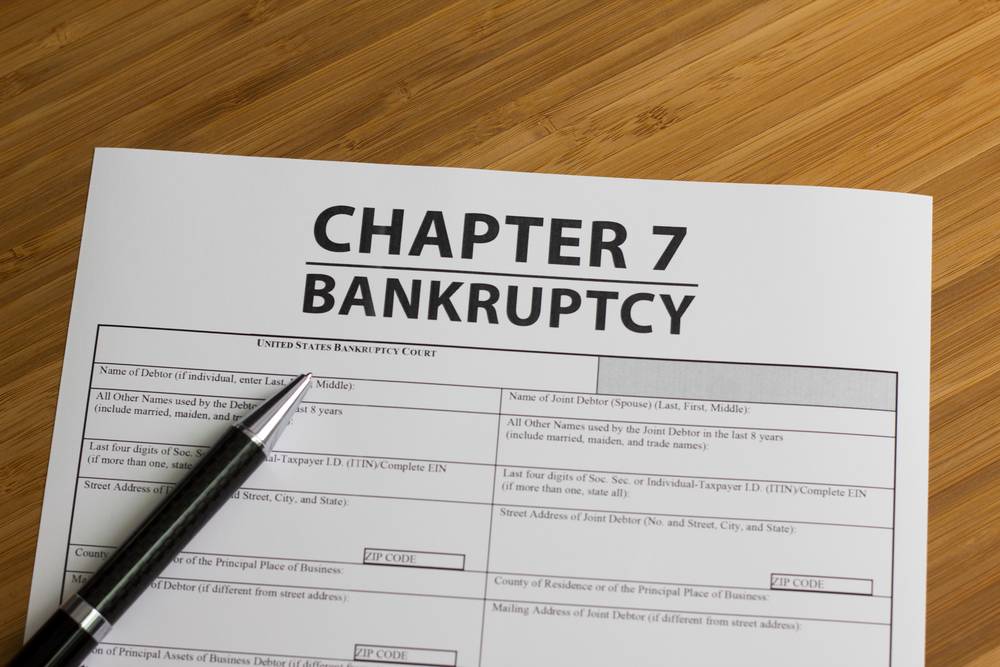Understanding Chapter 7 Bankruptcy and Its Impact on Student Debt
Filing for Chapter 7 bankruptcy can be a crucial step for many individuals facing overwhelming debts, including students burdened by university-related financial obligations. When a student’s Chapter 7 bankruptcy is discharged as a no-asset case, it typically means that most pre-filing debts are eliminated. This includes debts owed to universities, provided certain conditions are met. Understanding the nuances of how Chapter 7 bankruptcy interacts with student debts, especially university debts, is essential for students seeking financial relief and legal protection. This article aims to explore these complexities in detail and provide actionable insights for students and legal practitioners alike.
What is Chapter 7 Bankruptcy?
Chapter 7 bankruptcy, often referred to as liquidation bankruptcy, is a legal process that allows individuals or businesses to discharge unsecured debts and receive a fresh financial start. It involves the liquidation of non-exempt assets to repay creditors, but in many cases, debtors have no significant assets, leading to a no-asset or no-property case. For students, Chapter 7 bankruptcy can potentially eliminate various unsecured debts, including credit card debt, medical bills, and certain types of student loan debts under specific circumstances.
No-Asset Chapter 7 Bankruptcy and Its Implications
A no-asset Chapter 7 bankruptcy means that the debtor does not possess any significant assets that can be sold to satisfy creditors. In such cases, creditors do not receive payments from the bankruptcy estate because there are no funds available for distribution. Consequently, the bankruptcy case is typically straightforward and tends to discharge qualifying debts after the process concludes. This aspect is particularly important for students who may have limited income and assets but face mounting debts from university fees or tuition.
Key Criteria for Discharge of University Debt in Chapter 7 Bankruptcy
When it comes to university-related debts, the pivotal factor determining whether a debt is discharged in a Chapter 7 bankruptcy is the timing of the debt’s origination relative to the bankruptcy filing date. The debt's status hinges on whether it arose before or after the bankruptcy petition was filed.
- If the student withdrew from the university and the refund was processed before filing for bankruptcy, the debt is typically considered a pre-petition debt and is eligible for discharge.
- If the withdrawal and any refund occurred after filing for bankruptcy, the resulting debt is classified as a post-petition debt and is generally not discharged under Chapter 7.
This timing distinction is crucial because the bankruptcy discharge only eliminates debts that existed prior to the filing date. Debt incurred after filing remains the debtor's responsibility.
Handling Unlisted Creditors and No-Asset Cases
In some instances, a creditor such as a university may not have been listed among the debts declared in the Chapter 7 filing. Generally, in a no-asset case, this omission does not affect the discharge of pre-filing debts because there were no assets to pay any creditors. Therefore, most unsecured debts are discharged even if a particular creditor was omitted, assuming the debt arose pre-petition.
Moreover, creditors in no-asset cases are usually not required to file proofs of claim since no funds exist for distribution. This reduces administrative burdens and streamlines the bankruptcy process for all parties involved.
Practical Steps for Students Facing University Debt Collection After Bankruptcy
After a Chapter 7 bankruptcy discharge, students might still be contacted by debt collectors, including university collection agencies, regarding debts that were discharged. It is vital for students to understand and assert their rights in these situations. Students should take the following steps:
- Provide a copy of the bankruptcy discharge order to the collection agency.
- Clearly explain the timing of the university debt, emphasizing whether it arose before the bankruptcy filing.
- Communicate in writing to establish a documented record of the dispute and defense against debt collection efforts.
If collection efforts persist despite these measures, reopening the bankruptcy case to add the creditor and formally enforce the discharge may be advantageous. This legal action can help prevent unwarranted collections and clarify the discharged status of the debt in question.
Legal Protections Against Post-Discharge Debt Collection
The Bankruptcy Code affords debtors significant protections upon discharge. Creditors are legally prohibited from attempting to collect discharged debts. If a creditor or collection agency violates the discharge injunction, debtors may have grounds to pursue legal remedies, including sanctions against the creditor. This legal framework underscores the importance of promptly addressing unauthorized collection activities and seeking competent legal advice when necessary.
Assessment of Student Loans and Bankruptcy Dischargeability
It is important to distinguish typical university debts such as tuition or fees from federal or private student loans. While Chapter 7 bankruptcy can discharge many unsecured debts, student loans often require a separate hardship determination (an adversary proceeding) to be discharged. This process is more complex and involves proving undue hardship under legal standards. Students dealing with loan debts should consult with experienced bankruptcy attorneys to navigate these challenges.
Role of Legal Counsel and Support Services
Navigating bankruptcy filings, especially with student-related financial obligations, can be complex. Professional legal advice ensures proper filing, accurate debt listing, and effective protection from improper collections. Legal experts can also assist in reopening cases when needed and handling adversary proceedings related to student loans. For students and individuals seeking guidance, reaching out to knowledgeable bankruptcy practitioners is critical to achieving favorable outcomes.
Summary of Key Points for Students Considering Chapter 7 Bankruptcy
- Most pre-filing debts are eliminated in a no-asset Chapter 7 case, including university debts if the debt arose before filing.
- Debts incurred after filing bankruptcy are not discharged and remain the debtor's responsibility.
- Creditors do not need to file proofs of claim in no-asset cases, simplifying the process.
- Students should provide collection agencies with the bankruptcy discharge and explain the timing of debts to prevent further collections.
- Reopening bankruptcy to add a creditor can help enforce discharge protections if collection persists.
- Student loans typically require a separate hardship proceeding for discharge.
How to Seek the Right Help
If you are facing student debt issues in bankruptcy or need guidance on your financial situation, professional assistance is invaluable. You can reach out through the communication channels provided in our bio or send a private message to connect with experienced bankruptcy consultants. Timely support can make a significant difference in protecting your financial future.
Understanding the interplay between Chapter 7 bankruptcy and university debts is essential for students seeking debt relief. Most pre-filing university debts are discharged in no-asset bankruptcy cases, but the timing of the debt and filing is key. Students should actively manage communications with creditors and collection agencies post-discharge to enforce their rights. Professional legal guidance can help navigate complexities, ensuring protections are upheld and undue financial burdens are relieved.
Consultant Legal Marketplace specializes in comprehensive legal services for individuals and businesses facing bankruptcy and debt challenges. Our team comprises experienced attorneys, legal consultants, and financial advisors committed to delivering expert guidance and representation in bankruptcy matters.































